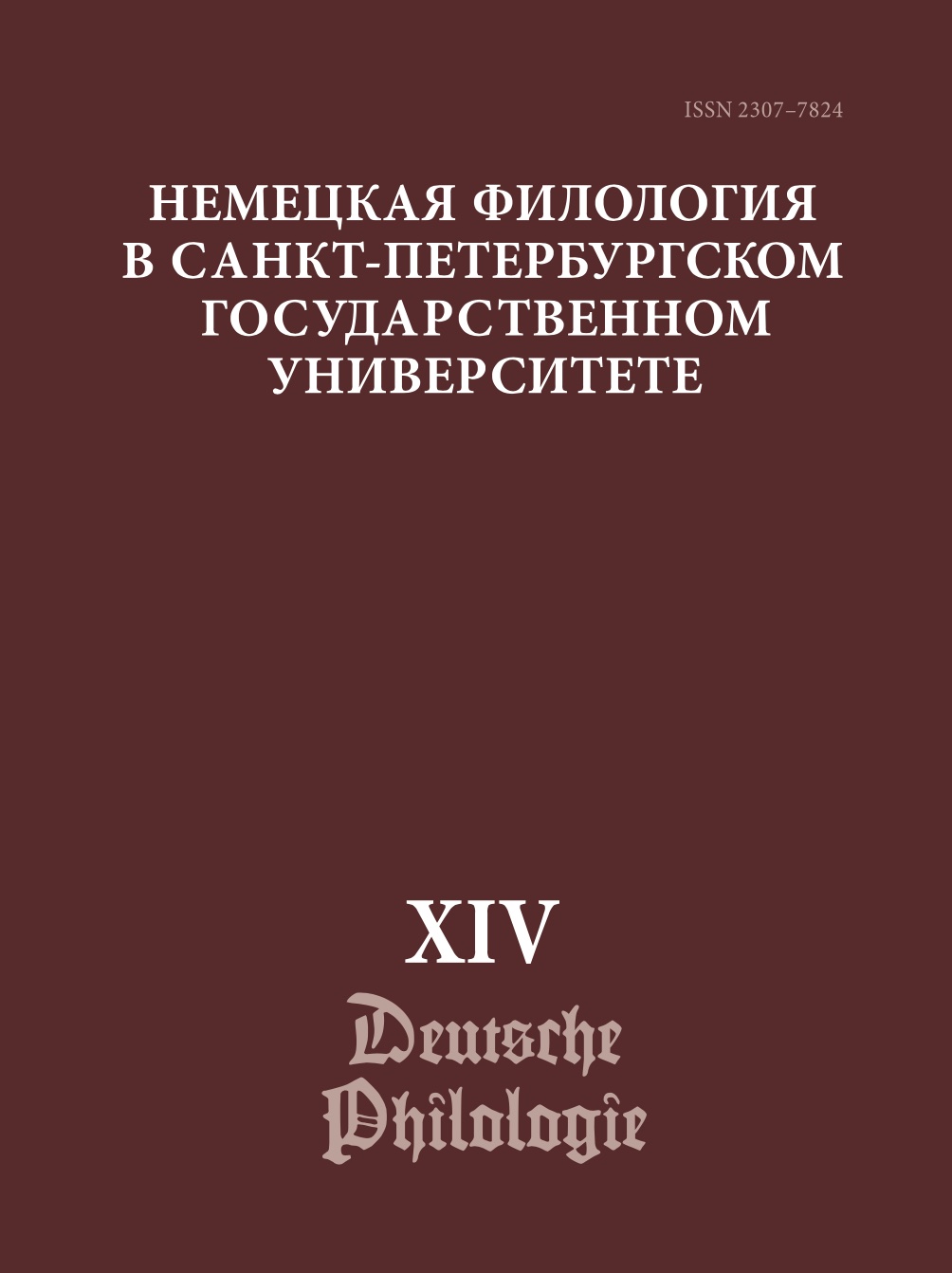COMPLIMENT AS AN ELEMENT OF COMMUNICATIVE BEHAVIOUR OF GERMANS IN THE 17TH AND 18TH CENTURIES
DOI:
https://doi.org/10.21638/spbu33.2024.107Abstract
This paper analyses compliment in communicative behaviour of Germans in the 17th and 18th centuries. The study was based on the so-called books of compliments, which are collections of codes of conduct. The author draws on the 1646 and 1647 editions of the “Ethica Complementoria” or “Complementier=Buͤ chlein” which served as the basis for the 1722 book of compliments supplemented with new chapters on new aspects of compliments. Finally, the 1744 collection of compliments is analysed. The author uses descriptive and contextual analysis to investigate what was understood by compliment. It is concluded that a compliment was defined as any polite conversation that would take into account the social status of the interlocutors and the social situation; it was an integral part of courteous behaviour. The repertoire of compliments along with etiquette greetings, farewells, expressions of gratitude, wishes, choice of appropriate address also comprised offering services, paying homage and assurance of sincerity. This repertoire would be used in very diverse etiquette situations, e. g. compliments at court, in voting and social situations, at weddings, dances, etc. It is concluded that interpreting a compliment was based not only on its content but also its functionality. The main aim of a compliment was to make the addressee feel at ease by convincing them of a sincere disposition of the addressor and their readiness to help which would give them a favourable position in the future. Considering the compliment in diachrony based on the material chosen represents a novel approach to studying this subject.
Keywords:
politeness category, etiquette, codes of conduct, compliment, address
Downloads
References
Литература
References
Downloads
Published
How to Cite
Issue
Section
License
Условия передачи авторских прав на статьи и рецензии, опубликованные в ежегодном периодическом издании «Немецкая филология» регулируются условиями Лицензионного Договора автора с Санкт-Петербургским государственным университетом. В соответствии с Лицензионным Договором опубликованные материалы находятся в открытом доступе, а авторам бесплатно предоставляется неограниченные возможности их распространения и самостоятельного архивирования.




